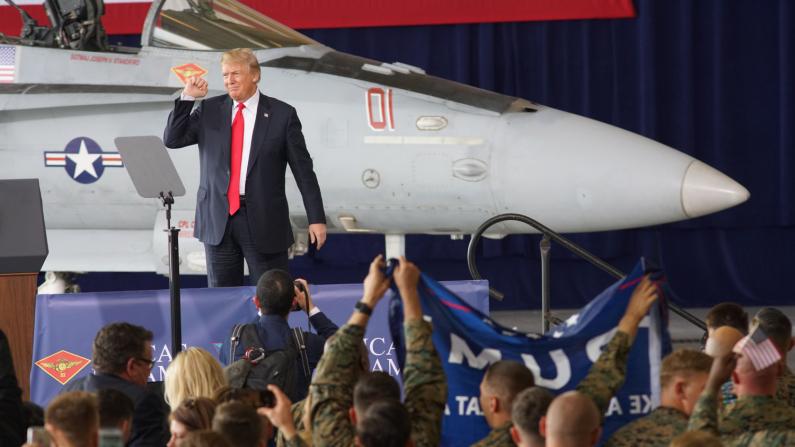President Donald Trump suggested creating a new military branch dedicated to space warfare during a speech to military service members in California on Tuesday, March 14.
Though the president’s idea is a novelty in the discourse at the top level of American politics, top armed forced experts have long warned that space is a military frontier. Intelligence reports of Russia and China developing lasers that could blast satellites out of space raised concerns among military top brass and in Congress that foreign adversaries are pursuing space technology to challenge the United States.





